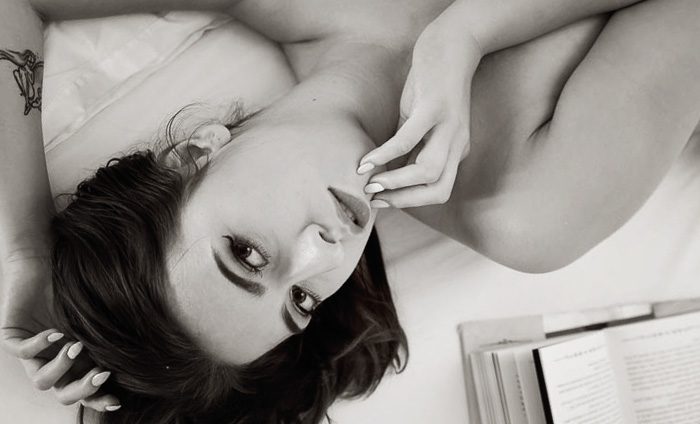At first glance, that may appear to be something of a clickbait title—and, if you’re reading this then you could say it’s done its job.
But that wouldn’t be true. The intention is quite the opposite, more an attempt to prevent you from scrolling straight past, than to actively encourage you to click and read.
I fear the full title is less clickbait, more click-repellant.
You see, “P****y” is in fact “Poetry” and if you’re still with me, thank you. I will do my best to persuade you of the wonders of verse, and the beneficial impact it can have on our mental health.
I’m only a recent convert myself. Having been an avid reader my whole life it is only during the last couple of years that I have started writing, and then reading, poetry.
I don’t know why I hadn’t been interested in it before, particularly as I always enjoyed writing poems during my primary school years. For some strange reason, I still remember writing a poem about the colour blue; and I remember being proud that a poem I wrote about “stranger danger” (any 80s kid will know what I’m talking about) was mounted and displayed outside of the headteacher’s office.
Oh, and I loved Roald Dahl’s Revolting Rhymes.
Aside from that, poetry was never a thing for me. I wouldn’t say I had any kind of active dislike of it, it just wasn’t on my radar. I guess I’d just decided it wasn’t for me.
I would have scrolled past any article that was about poetry. And yet I’m someone with a love of the arts; I love words, I love reading, and I love music. If I didn’t have even a glimmer of interest in poetry, then how could I expect anybody else to? And why would I want them to anyway?
Then, in 2016, poetry entered my life in a big way.
I started writing a blog in December 2015, following the breakdown of my marriage. I used it to help me navigate my way through divorce and dating, to explore my battles with depression, and to help others who were facing similar challenges.
In October 2016, my children bought me a notebook and pen for my birthday. With pen in hand, I sat down to write something and, without any conscious forethought, out came a poem. My first in decades. The poem in question, beyond the broken bits, was a reflection of my circumstances at the time—I had just been dumped on my birthday weekend (cheers!). Still, I was happy with the poem.
I quickly discovered that I loved writing poems, and they poured out of me. Soon I had written well over 100, and I shared them as I wrote on my website, Instagram, and Facebook pages.
At this point in time, I was working in the sport of boxing, not commonly known for its sensitivity or proclivity toward poetry. Part of me wondered how it/I would be perceived within this unforgiving sport, but I’m not one to be deterred from following my instincts and passions for fear of what others may think. As it turned out, there haven’t been any negative comments (at least not to my face) and I can count a former world champion as a fan of my work. Boxers can actually be more sensitive than you may think.
After a few years, I decided to collate a selection of my poems into a book, A Familiar Stranger.
Divided into four sections: living, loving, falling, and rising, I would like to think that it contains something for everyone. Exploring the challenges of modern life, it winds its way through the social to the spiritual, the political to the deeply personal. Love, loss, loneliness, mental health, and the search for meaning in suffering, rub shoulders with musings on more prosaic, day-to-day concerns such as being stuck on hold, business doublespeak, and a heated encounter with a drunk in a local bar.
It’s not a very English thing to say, but I’m proud of it (and it looks amazing, thanks to my brother’s talent for painting and my publisher’s talent for design). That said, publishing it makes me a little nervous. Why?
Because poetry is a form that comes with a certain literary heft. With that comes the business of criticism, of experts in the form acting as arbiters of worthiness.
The first poetry book I read, well, the first since Revolting Rhymes, was Rupi Kaur’s the sun and her flowers. I loved it, but not everybody did. And while of course everything is a matter of taste, there’s something I find incredibly patronising about the criticism that her work has attracted.
I haven’t studied poetry. I don’t know “the rules.” I don’t know what makes a poem good. Perhaps it’s for these reasons that until last year I hadn’t really read much poetry. Who wants their tastes rubbished by their appointed cultural and intellectual superiors?
What I do know is, as a writer of poetry, I love finding the right words, arranging them, and finding the rhythm, the rhyme, and the heart of each poem. There are few feelings more satisfying than the feeling that you have captured something real, something meaningful—something profound even—with just a few carefully chosen and carefully placed words. When those words connect with others, stirring their emotions and their minds, it’s an amazing feeling.
Away from the labels of poet and poetry, all I am really doing is what I’ve always done; playing around with words to express myself and to make some sense of the world and the mind that I inhabit. And by embracing poetry, my life has been enriched by the words of people such as Lang Leav, Cleo Wade, Charly Cox, Louis de Bernieres, Kate Tempest, Dante, Milton, and many others.
By not thinking that poetry was for me I was missing out, and maybe you are too.
Poetry can be truly magical. It is a form that has the ability to capture feelings and emotions in a way that no other can. It has the power to carry the reader to new places, exploring the landscapes of the known and the unknown, tracing the contours of the material world and of the inner worlds that each of us inhabit. In doing so, poetry has the power to connect us with something greater than ourselves, and, in both the writing and the reading, that can make it hugely beneficial for our mental health and well-being.
If you’re feeling that something is missing from your life, if you’re questioning what it all means, if you feel heartbroken, or lost and alone, maybe give poetry prescription a try: read it, write it, savour it.
It could turn out to be the sweetest tasting medicine you ever take.
 Share on bsky
Share on bsky





Read 1 comment and reply